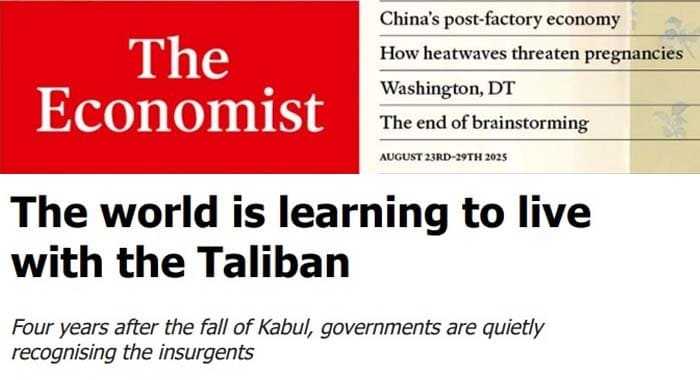Since seizing power in August 2021, the Afghan Taliban have entrenched one of the world’s most repressive regimes while exploiting regional rivalries to claw their way out of isolation. Despite their abhorrent treatment of women, ties with global terrorist networks, and refusal to form an inclusive government, the group is steadily gaining diplomatic space a trend that poses grave risks for Afghanistan and beyond.
Women in Afghanistan have been stripped of nearly every basic right: barred from secondary education, banned from working with NGOs, and denied access to public spaces such as parks. Vice-and-virtue police patrol the streets of Kabul with increasing zeal, harassing women to ensure they remain veiled and accompanied by male guardians. International pledges to link recognition with human rights have been ignored, leaving Afghan women abandoned under one of the most draconian systems in modern history.
Yet, countries such as Russia, China, and the UAE have chosen economic and political expediency over principle, raising the Taliban’s flag in their capitals while eyeing Afghanistan’s mineral wealth. Deals are being cut by Chinese, Turkish, and Iranian firms, giving legitimacy to a regime that thrives on repression. Western states, too, are engaging in what one diplomat calls a “charade,” holding quiet talks while pretending not to recognise the Taliban.
The Taliban continue to harbour extremist figures at the highest levels of government. Interior Minister Sirajuddin Haqqani, once responsible for orchestrating suicide bombings against civilians and Western forces, remains on international terrorist lists even as sanctions have been diluted to allow dealings with his ministry. Far from being a force for stability, the Taliban regime has become a safe haven for militants across the region.
Claims of reduced corruption or poppy cultivation cannot obscure the grim reality: Afghanistan has become a black hole of rights and freedoms. No credible opposition is allowed, dissent is crushed, and humanitarian crises deepen as aid cuts, refugee expulsions, and drought devastate the population. Rather than bringing peace, the Taliban’s return has locked Afghans into a future of authoritarian rule and international isolation.
The Taliban’s so-called “strength” lies not in governance but in fear, repression, and opportunism. By tolerating or normalising their presence on the diplomatic stage, the international community risks empowering a regime that continues to trample human dignity while offering nothing but instability to the region.





